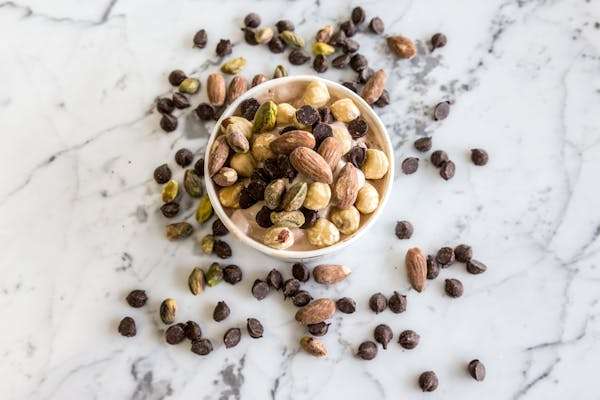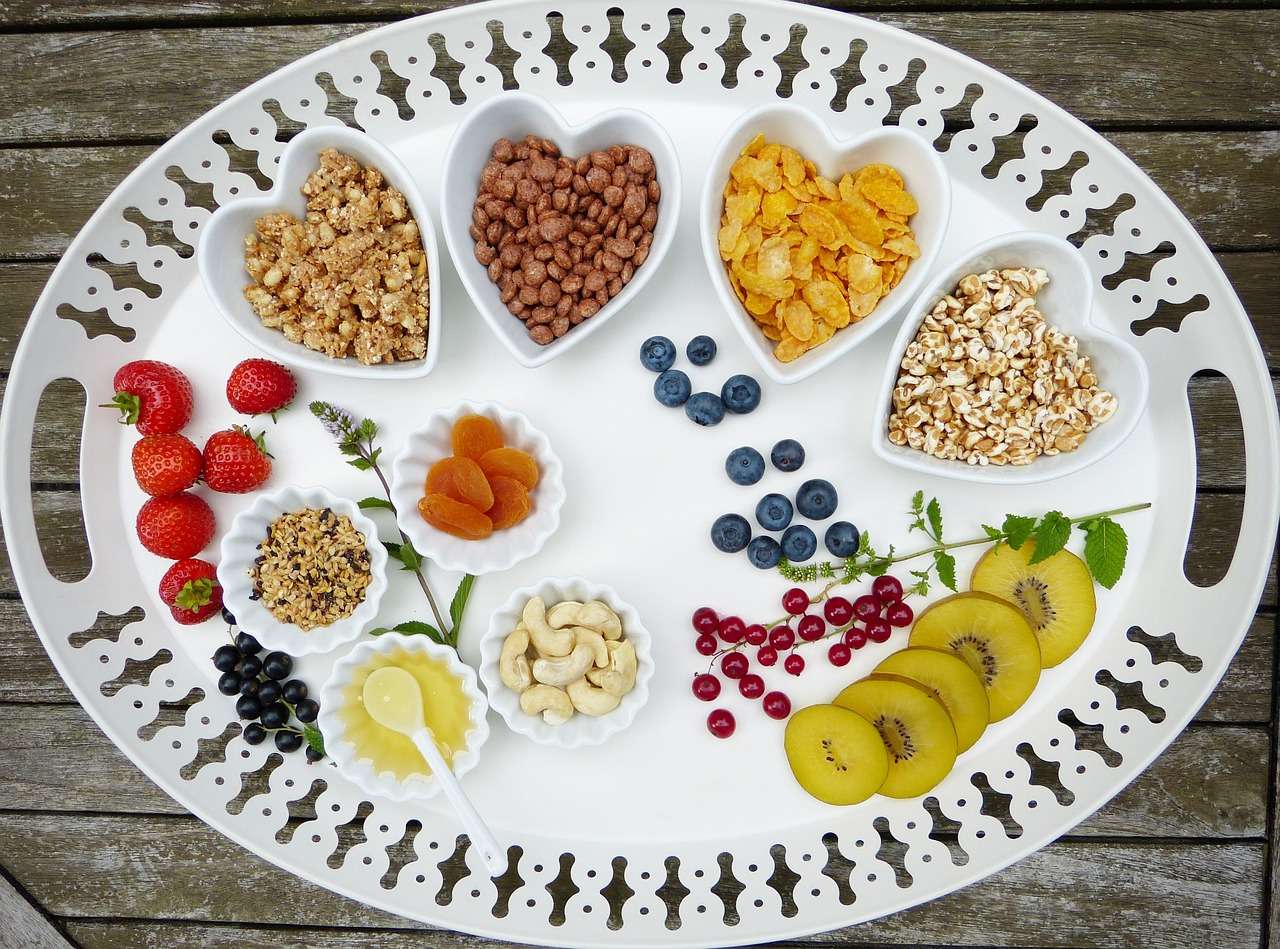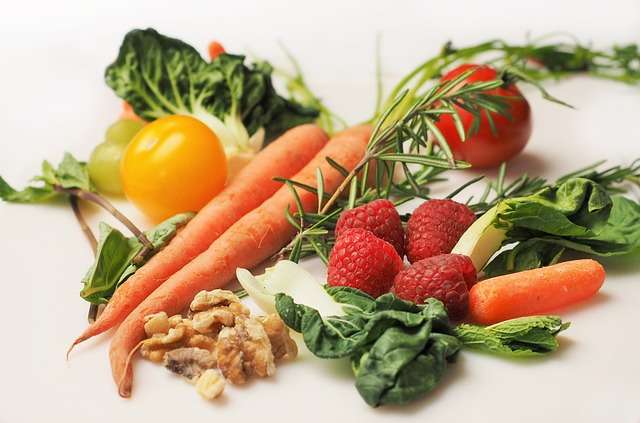Maintaining a healthy diet in pregnancy for healthy baby development is crucial for both the mother and the baby. The body experiences major changes throughout pregnancy, and the developing fetus needs more nourishment.
The mother and the unborn child can both benefit from receiving the vital vitamins and minerals required for good health with the support of a well-balanced and nourishing diet.
This helps the baby grow physically and also gives the woman more energy, strengthens her immune system, and gets her body ready for giving birth.

The first step to a happy and successful pregnancy is realizing how importance of a healthy diet in pregnancy for a healthy baby. By setting realistic dietary goals and focusing on nutrient-rich foods, expectant mothers can create a positive and nurturing environment for their babies to thrive.
Setting Realistic Goals in Pregnancy:
Pregnancy is a time of immense joy, but it can also be overwhelming. Your body is changing rapidly, you’re likely experiencing a flood of emotions, and there’s so much to prepare for. Setting realistic goals can help you navigate this exciting time and feel empowered throughout your pregnancy.
What makes a goal realistic
- Specific: Instead of “eat healthier,” aim for “include at least two servings of vegetables with every meal.”
- Measurable: Can you track your progress? Aim for “walk for 30 minutes three times a week.”
- Attainable: Be honest about your energy levels and limitations. Start with small, achievable goals and gradually increase difficulty.
- Relevant: Does this goal align with your overall well-being and pregnancy desires?
- Time-bound: Set a timeframe to achieve your goal. Aim to “read two pregnancy books by the end of the trimester.”
Healthy Diet in Pregnancy for a Healthy Baby:
Eating a nutritious diet is crucial for both your health and your baby’s development. Focus on a well-balanced diet that includes:
- Fruits and vegetables: Aim for a variety of colors to ensure a good intake of vitamins and minerals.
- Whole grains: These provide sustained energy and fiber.
- Lean protein: Necessary for tissue growth and repair.
- Healthy fats: Include healthy fats like avocados, nuts, and olive oil in your diet.
Don’t forget essential nutrients
- Folic acid: Helps prevent birth defects.
- Iron: Transport oxygen to your baby and throughout your body.
- Calcium: Supports your baby’s bone development.
You don’t need to “eat for two,” just slightly more calories each day. Give attention to nutrient-dense foods instead of empty calories. If you have any concerns about your diet or weight gain, talk to your doctor or a registered dietitian.
By setting realistic goals and prioritizing a healthy diet, you can take control of your pregnancy journey and create a foundation for a healthy baby.
Healthy Diet Strategies:
The secret to keeping a healthy diet in pregnancy for a healthy baby is to put successful techniques into practice. These techniques manage the particular difficulties associated with pregnancy while ensuring the mother gets the nourishment she needs.

Expectant moms can promote both their own health and the growth of their unborn child by emphasizing balanced meals, nutritious snacks, and adequate hydration.
Balanced Meals
The Value of Color and Variety Proteins, carbs, and fats are all included in a balanced meal, along with vital vitamins and minerals. Not only can bright fruits and vegetables provide visual appeal to meals, but they also guarantee a wide range of nutrients.
Carrots are high in beta-carotene, berries contain antioxidants and leafy greens supply folate. Consuming lean proteins, such as those found in fish, poultry, and lentils, promotes overall growth and muscle building.
Whole grains that provide fiber and sustained energy include brown rice and quinoa. For a pregnant woman to maintain a healthy diet and have a healthy baby, meal diversity and balance are crucial.
Incorporating Healthy Snacks
Ideas and Recipes Healthy snacks help maintain energy levels and manage hunger between meals. Nutritious options include Greek yogurt with honey and berries, mixed nuts, apple slices with almond butter, or whole-grain crackers with hummus.
Preparing simple, nutrient-dense snacks ensures that the mother stays nourished throughout the day, supporting the baby’s development.
Hydration
Innovative Strategies for Hydration It’s important to stay hydrated throughout pregnancy because it promotes increased blood volume, aids in the development of amniotic fluid, and facilitates digestion. Make it a daily goal to consume 8–10 glasses of water.
Try adding slices of lemon, cucumber, or fresh mint to your water to make it more fun to stay hydrated. Herbal broths and teas are also excellent choices. A healthy diet in pregnancy is for a healthy baby, and staying hydrated is one of those things.
Expectant moms can ensure they are giving their unborn children the finest nutrition possible while also taking care of their own health by adhering to these healthy diet guidelines.
Dealing with Common Pregnancy Challenges
Pregnancy often comes with various challenges that can make it difficult to maintain a healthy diet in pregnancy for a healthy baby. By addressing these issues head-on, expectant mothers can ensure they continue to receive the necessary nutrients for their baby’s development.
Morning Sickness
Foods that Aid A typical problem is morning sickness, particularly in the first trimester. Eat small, frequent meals and bland foods like bread, crackers, and bananas to help ease nausea.
Peppermint and ginger tea are also effective stomach relaxants. It’s important to stay hydrated, so be sure to drink electrolytes or water throughout the day.
Managing Weight Gain
Healthy weight gain is crucial for a healthy pregnancy. Focus on nutrient-dense foods that provide vitamins and minerals without excessive calories.
Avoid high-sugar and high-fat junk foods. Instead, choose whole grains, lean proteins, and plenty of fruits and vegetables to maintain a balanced diet and support healthy weight gain.
Cravings and Aversions
During pregnancy, cravings and aversions are frequent. To deal with cravings, look for nutritious substitutes. Try fruits or yogurt with honey, for example, if you’re craving sweets. If dietary aversions make it difficult to eat a certain dish, look for other sources of nutrients.
For instance, try plant-based proteins like tofu or beans if you’re intolerant to meat. Mothers can ensure optimal development of their unborn child and their personal well-being by managing typical pregnancy problems and maintaining a healthy diet in pregnancy for a healthy baby.
Long-Term Benefits:
Maintaining a healthy diet in pregnancy for a healthy baby yields numerous long-term benefits for both the mother and the child. These benefits extend beyond the pregnancy period, influencing the overall well-being and future health of both.
How Pregnancy-Related Good Diets Establish the Foundation for Lifelong Health
Pregnancy-related nutrition and balance help create the groundwork for the unborn child’s lifetime health.
A healthy diet promotes vital developmental processes, such as the growth of the brain and organs, which lowers the chance of chronic illnesses and congenital defects in later life.

For instance, the growth of the brain depends on a proper intake of omega-3 fatty acids, which can improve cognitive performance and lower the risk of developmental disorders.
Encouraging Healthy Eating Habits in Children
Future food choices made by a child might be significantly influenced by their mother’s healthy eating habits. When given a wide variety of nutrient-dense foods at a young age, children are more likely to develop good eating habits.
Diverse diets consumed by breastfeeding moms can also be passed on through their milk, increasing the receptiveness of their offspring to a wider variety of foods.
This early exposure can help the child develop healthier eating habits as they become older, which can help avoid childhood obesity and other diet-related health problems.
Long-Term Benefits for the Mother
A nutritious diet throughout pregnancy can help moms recover from childbirth more quickly and reduce their chance of developing postpartum depression. Sufficient dietary intake boosts the mother’s vitality and immune system, both of which are essential for handling the responsibilities of caring for a newborn.
Moreover, keeping a healthy weight throughout pregnancy helps lower the risk of preeclampsia and gestational diabetes, improving long-term health outcomes.
Expectant moms can guarantee enduring advantages that advance the health of both themselves and their offspring for years to come by making a nutritious diet a priority during pregnancy in order to have a healthy baby.
Conclusion:
In summary, maintaining a healthy diet in pregnancy for a healthy baby is crucial for both maternal and child health. By setting realistic goals, adopting effective diet strategies, overcoming common pregnancy challenges, and understanding the long-term benefits, expectant mothers can ensure optimal development for their babies.
Prioritizing a balanced and nutritious diet during pregnancy not only supports the baby’s growth but also lays the foundation for lifelong health and well-being for both mother and child. Click to learn more.
FAQs:
- What are the essential nutrients for a healthy diet in pregnancy for a healthy baby?
Iron, calcium, folic acid, and omega-3 fatty acids are important nutrients. These support brain development, and bone health, and prevent anemia.
- How can I manage morning sickness while maintaining a healthy diet in pregnancy for a healthy baby?
Eat small, frequent meals, and choose bland foods like crackers and bananas. Ginger tea and peppermint can also help reduce nausea.
- What foods should I avoid to ensure a healthy diet in pregnancy for a healthy baby?
Avoid high-mercury fish, unpasteurized products, caffeine, alcohol, and processed junk foods to protect your and your baby’s health.
- How much weight should I gain during pregnancy to ensure a healthy diet in pregnancy for a healthy baby?
Weight gain recommendations vary, but typically 25-35 pounds is healthy for women with a normal pre-pregnancy weight.
- Can cravings and aversions impact a healthy diet in pregnancy for a healthy baby?
Yes, but you can manage them by choosing healthy alternatives for cravings and finding substitute nutrient sources for aversions. This ensures you still get the necessary nutrients.
